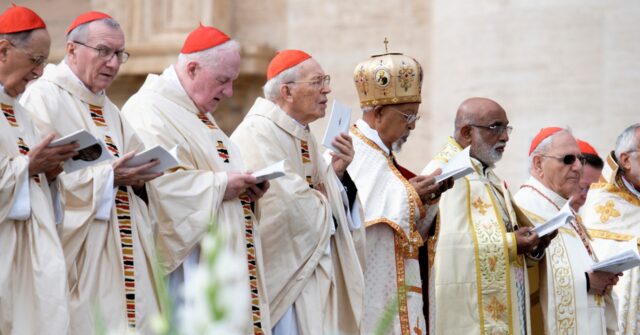Recent discussions within the Catholic Church, particularly pertaining to the ongoing Vatican “Synod on Synodality,” have sparked significant debate about the decentralization of doctrinal authority. A faction of bishops is advocating for local bishops’ conferences to assume power over doctrinal teachings in their respective regions. This movement, however, is met with substantial resistance from various members of the Church hierarchy, who argue that such a shift could lead to an erosion of coherent Church teaching and a fragmentation of the faith. Critics of this decentralization are concerned that it would permit regional variations in moral teachings, creating a reality where the same actions—such as homosexual relations—are deemed sinful in one locality but acceptable in another.
The Synod’s working document suggests establishing episcopal conferences as entities endowed with doctrinal authority, accounting for the diverse cultural and social circumstances across the Church. However, participants in the Synod have indicated that there is significant opposition against this proposal. Many have expressed fears that the adoption of localized doctrinal authority could weaken the universal nature of the Church’s teachings. One delegate noted that the pushback has been so strong that “a majority is clearly opposed” and highlighted that the idea of a fragmented faith would inevitably lead to a fragmented Church. This sentiment captures the collective apprehension among various bishops regarding the potential implications of such a significant shift in doctrine.
Bishop Kevin C. Rhoades of Fort Wayne-South Bend voiced concerns about the dangers of fragmented doctrinal authority, arguing that this could not only undermine Church unity but hinder its mission of evangelization in an already divided world. He emphasized that the Church must embody a sign of unity, particularly in moral teachings, which are meant to transcend geographical and cultural boundaries. The official Vatican stance reflects this notion, as outlined in the document Apostolos Suos, which maintains that the Church’s doctrine is a universal good that must remain consistent across different regions. The Vatican states that bishops in conferences should prioritize the magisterium of the universal Church to maintain unity in faith and teaching.
Economics of doctrinal divergence are complicated by the discussions among some prelates, particularly in Germany, where there is a push toward regionalizing doctrine around themes of gender and sexual morality. Bishop Stefan Oster of Passau has cautioned against conflating regional pastoral approaches with doctrinal teachings, stressing that while local pastoral practices may vary, the core tenets of the faith should remain uniform. Similarly, Archbishop Anthony Fisher of Sydney underscored that it is unacceptable for the Church to promulgate disparate teachings across countries, invoking hypothetical instances such as the ordination of women or the acceptance of same-sex marriages as potential outcomes of uncontrolled doctrinal fragmentation.
The fear of fragmentation is palpable among the bishops attending the Synod. They worry about the potential for localized interpretations of doctrine that could result in deep ideological divides within the Church. As discussions continue, it becomes clear that many bishops are keen on preserving the universal nature of Catholic teachings, believing this is critical for the Church to remain a unified force amidst a world grappling with moral ambiguity. The overwhelming sentiment among these bishops and the community is that any attempt to grant localized doctrinal authority must be approached with caution to avoid undermining the foundational unity of the Church.
In conclusion, the conversation surrounding the decentralization of doctrinal authority within the Catholic Church raises significant concerns among bishops and Church leaders about the implications for unity and coherence in teaching. As the Synod on Synodality progresses, it remains to be seen how these discussions will influence the future structure and authority within the Church. While acknowledging the necessity for pastoral adaptation to diverse cultural contexts, many bishops emphatically argue that essential doctrinal teachings must remain universal to maintain the Church’s identity and mission in an increasingly polarized world. The ongoing debate encapsulates a crucial moment in the Church, as it seeks to reconcile local needs with the imperative of a unified doctrine.

